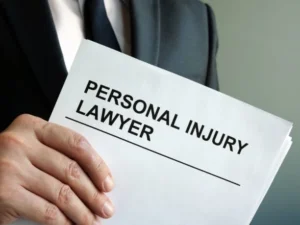Criminal law is one fundamental pillar of any justice system that leads preventively and retributively against actions that are seriously perceived as injurious and threatening to either individuals or society. From theft or assault to more complex offenses like fraud or murder, criminal law keeps everything in check, avenging public safety, ensuring punishment of the guilty, and keeping order in society.
We are going to explain the legal definition of a criminal act, categorize types of crimes with real-life examples, and peer into the broad implications of law crime enforcement.
Definition of Criminal Law
Criminal law means a collection of rules defining conduct that is prohibited by the government, because it poses a substantial threat and harm to public safety and welfare. Such laws are enforced by either state or federal government, and any violation may incur penalties such as fines, imprisonment, probation, or community service.
Now, we try to look at the criminal law in contrast to civil law; unlike civil law which seeks to resolve conflicts between two parties, criminallaw deals with offenses considered to be against society at large. The accused are prosecuted by the government, through a prosecutor, who brings the charges against them, which might result in a loss of freedom, making criminal law a matter of great seriousness.
Legal Definition of a Criminal Act
Variations exist in the legal definition of criminal behaviour across jurisdictions. However, usually, actus reus (the bad act) and mens rea (a guilty mind) form the two basic components of criminal behaviour. A legal crime is one that has been defined by law to be contrary to the public interest, and such an act must be either an act or an omission with respect to actus reus, together with associated guilty state of mind with respect to mens rea.
There must be clear evidentiary proof that shows both act and mental state for it to qualify under crim law. For example, an accidental bump would not typically constitute a crime; an intentional punch would. Such a distinction becomes vital in determining the legal definition of a criminal behaviour.
How Criminal Law Differs from Civil Law?
While criminal law and civil law serve different purposes and follow different procedures, civil law is generally concerned with private disputes between natural or legal persons in which one party asserts a claim against another. An example might be breach of contract or pertain to property disputes. The usual remedy is by way of compensation or injunction.
Law crime on the other side involves the state prosecuting one accused for breachage of public laws. The penalty can go farther up than that-often stretching to incarceration itself. And while civil cases determine a matter as “preponderance of the evidence:” criminal law proves “beyond a reasonable doubt,” a higher threshold considering the ruling liberty.
Types of Crimes Under Criminal Law
All the criminal offenses can be classified into different categories so that they can aptly serve their purpose in dealing with them in the justice system. Each classification can help ascertain the crime’s severity and what punishment will be meted out.
Felonies
Murder, Rape, Arson, etc. Such acts include murder, rape, arson, robbery, etc., and involve severe penalties per felony usually over a year or two years in prisons.
Misdemeanors
A less serious offense compared to felonies; petty theft, public intoxication, or even simple assault count as misdemeanors. Most punishments are fines or short-term imprisonment.
Infractions
Infractions are crimes that the public considers minor. A traffic citation and noise complaints would fall into this category, and were the consequences so serious that jails would be involved; infractions would only be imposed by fine.
White-Collar Crimes
These include the commission of offenses that take place within the context of financial gain: embezzlement, insider trading, and sometimes identity theft among others. Most of these offenses require and demand great complexities in the law.
Violent Crimes
Assault is characterized by force or threats of force. Homicide and kidnap, offenses classified as crimes of violence and strenuously penalized.
Understanding such kinds of criminal law delineates the variety of conduct criminalized and how varied legal responses are vis-a-vis offenses committed.
Examples of Criminal Law in Action
That is why an example of criminal law in action is the individual’s simple illustration carrying a shoplift into a store and getting caught. Since the act is considered stealing, he or she may face charges filed against him or her according to the value of the item stolen-whether a misdemeanor or felony. The sentence includes a fine, incarceration, or even the possibility of probation are some of the penalties that follow the adjudication of this crime.
Another example of a criminal law proceeding in action is driving under the influence. Normal procedure after an arrest for driving under the influence consists of either having one’s license suspended, jail time, or both, especially if an accident results from the offense. The criminal law examples at this point bring a manifestation of how such laws are incarnated in a real-life scenario intended for the safety of society.
Real-World Example of a Criminal Law Case
An example of criminal law in action is the case of State of Florida v. George Zimmerman. This very famous case involved the shooting death of teenager Trayvon Martin and created a national debate: Zimmerman was charged with second-degree murder under criminal law, but his defense was self-defense based on Florida’s “Stand Your Ground” law.
Despite the acquittal of Zimmerman, the case illustrated the way criminal law looks at pieces of evidence, the state of mind, and applicable legal defenses-entailing also the misaligned expectations of the public with outcomes in legal proceedings. Such cases divulge the significance of due process and fair trial proceedings in crim law.
Commonly Used Terms in Criminal Law
- Defendant: The person accused of committing a crime.
- Prosecutor: The legal representative of the state or government bringing charges.
- Indictment: A formal charge issued by a grand jury.
- Arraignment: The court proceeding where charges are read, and the defendant enters a plea.
- Bail: Money paid to temporarily release an accused person before trial.
- Conviction: A legal judgment that the defendant is guilty.
- Acquittal: A legal judgment that the defendant is not guilty.
These terms form the foundation of understanding how legal crime cases are handled in court from start to finish.
For one to know crim law, she or he must identify certain classic legal terms often encountered in courts or enshrined in legal documents. Below are some commonly used terms:
- The defendant is that person being charged with the crime.
- Prosecutor is the representative in court of the state or government bringing the charges.
- The indictment is a formal charge issued by a grand jury.
- Arraignment is the court proceeding whereby charges are read and a plea is entered by the defendant.
- The bail is a money paid to free a suspected criminal temporarily before trial.
- Conviction is a judgment wherein the defendant is found guilty.
- Acquittal is a judgment wherein the defendant is found innocent.
These words set the groundwork for realizing how legal crime cases are handled throughout the court from start to finish.
Who Enforces the Criminal Laws?
Criminal laws exist in concert with local, state, and federal forces. The first contact of the police officers is generally the ones responding to reports of illegal activities, making arrests, and conducting investigations. Their work ensures that violations of criminal law are properly discovered and documented.
After an arrest, prosecutors take over charging the accused, thus beginning the representation of the state in court. Judges and juries then pass judgment on guilt or innocence, based on the evidence. Federal enforcement is usually reserved for specialized crime or cross-border crime: FBI, for instance, can be brought into handle special cases. In there own setting each entity plays an important role in sustaining the causes of criminallaw.
Why Criminal Law Matters in Society?
Criminal law consisted of more than rules, but simply, it implied a way of social ordering-it takes out clear behavioral definitions from unacceptable but punishes activities perhurts to deter crime and protect individuals from crime. No crim law will be found in society and safety and justice.
In addition to punishment, criminal law is a preventative and remedial measure that is a manifestation of the changing state of morality of a given society. It not only conveys a message to would-be offenders and the general society, but also indicates that some forms of behaviors are unacceptable and will be punished. In this way, it contributes to the development of ethical conduct and achievement of mutual perception of right and wrongness, which is a requirement of peaceable co-existence as well as the stability of society at large in the long term.
Criminal law also enables holding offenders accountable and providing avenues for rehabilitation and reform. Whether punishing serious offenders or directing the minor ones onto the right track, a law crime does contribute heavily towards a fair society legal for everyone.
Final Thoughts
Criminal law covers every aspect from defining illegal acts and bringing real-world examples into the picture to shaping the operations of any justice system. In other words, whether studying criminal law, playing about confronting some legal issue, or just curious about some rights, these primary tenets are essential.
Knowing the very definition of what constitutes criminal behavior and the various forms of offenses that can be brought against someone as well as how the system works will empower individuals to participate much more confidently in the legal world.





